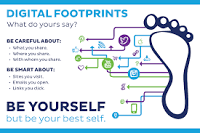May 2, 2023
The Internet
The Internet is one of humanity's greatest achievements. Cell phones are basically computers that we have access to on the go. We are now able to connect with anyone on the Internet, which makes our lives easier and more efficient. All good things do come with consequences. Before the Internet was a thing, the terms "cyberbullying," “revenge porn," and even "ghosting" were never a thing. Before social media, mental illnesses such as depression and anxiety were not rising among our youth. Suicide rates were not increasing as much as they are now that the Internet and social media are so popular.
Unhealthy Relationships
I believe more people have unhealthy relationships than healthy relationships when it comes to the Internet. People are becoming way too dependent on it, and it almost seems as if they cannot live without it anymore. It is so easy to become addicted to social media and other online activities. With constant instant gratification and endless entertainment, it is very easy to lose sight of reality and forget about the real world.
My Personal Experiences
I have been tracking my screen time for the purpose of this assignment for the past week. When Sunday came around, I was shocked to see how much time was spent on my phone. I had over 70 hours of time spent using my cellular device. That does not even include the TV that I watched that week or the time that I spent on my computer doing school assignments.
These numbers were shocking, and I feel like I can't go without my phone. I am so reliant on it that if I were to lose it or it stopped working, I would not be able to go about my day. That may sound dramatic, but if you take a close look at what I do every day, it is clear that I do need my phone. If I weren’t to use my phone, I would completely have to change my whole lifestyle.
I use my phone for so many different things in my day-to-day life. First of all, it is required by my sorority to have a Facebook account and to be a part of the Kappa Delta Facebook group. The group page is where the executive members post about mandatory events, meeting dates, and other important information. Without my phone, I wouldn’t be able to have access to any of that information. In addition, I use my phone every day to call my family back home. I live in New Hampshire, so being able to communicate with them digitally is one reason why I am able to come to this school. If I weren’t able to text or call my family, I would become very homesick and wouldn't know what to do. In addition to calling my family, my phone makes it possible to be in a long distance relationship. My boyfriend lives back home, and if I were not able to contact him each day, we probably would've broken up. Another way in which I utilize my phone during the week is through social media. My most used apps are Snapchat, Instagram, and Facebook. I find that this generation is constantly on these different applications to keep in touch and know what other people are up to. Snapchat is definitely an important application for me. All of my friends use it to communicate and make plans. All in all, these different social media platforms basically help me stay connected to the people that I know. Without them, I would feel disconnected and completely out of the loop.
Misleading Information
I believe the Internet is a great place to inform and make people smarter. There are countless resources available online, from educational videos to news articles. It definitely helps me a lot when it comes to schoolwork or when I need to find specific information quickly. However, the Internet can be a place where users can find misleading and unreliable sources. You can’t believe everything that you see, and it is critical to verify and fact check before believing or sharing something.
Honestly, before this class, I was never really worried about how the Internet can be misleading and unreliable. I feel that it is just an accepted part of the society we live in. It wasn’t until taking this class that I realized the importance of finding various sources, seeing the other side of things, and being unbiased about material that I find on the Internet. Unlike our parents and grandparents, my generation had access to the Internet, so it is a more normal thing for us to experience. We don’t know the difference between our world and a world without the Internet. It definitely takes maturity to come to the realization that we cannot believe everything that we see on the internet.
Online Footprint
When I first began using social media, my parents taught me that what you put out on the Internet always stays out there and can always be found. I feel like their saying that almost made me worried and definitely made me more self-aware of what I was putting out there. I have numerous accounts on different kinds of platforms. Instagram, Snapchat, Facebook, VSCO, Pinterest, and TikTok are the platforms on which I post content. When it comes to posting, I always think to myself, "If my dad or grandfather saw this, would they think it was okay?" I think that this is an important thing to remember when sharing photos of yourself, friends, or places. As for commentary, I always remember the saying, “If a person was trying to hire me and they saw me saying this, would they think it was okay?” These are little things I use to keep myself in check when using social media. With that being said, I don’t think my online footprint is bad, and I would not be worried about employers looking up my social media accounts to get an idea of the person I am.
Sources:
https://usa.kaspersky.com/resource-center/definitions/what-is-a-digital-footprint
https://www.controldesign.com/connections/cybersecurity/article/11315837/the-internets-unintended-consequences




















